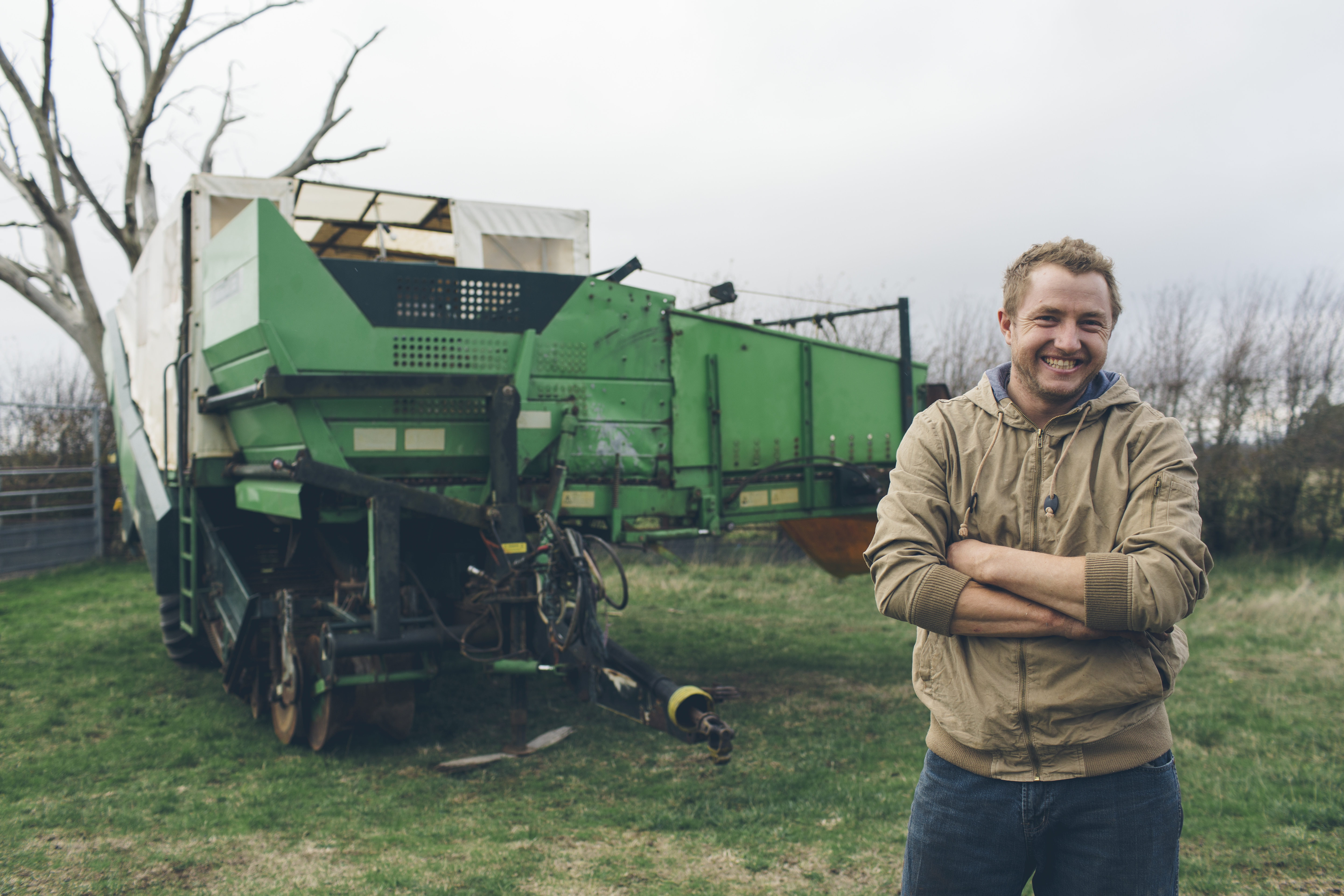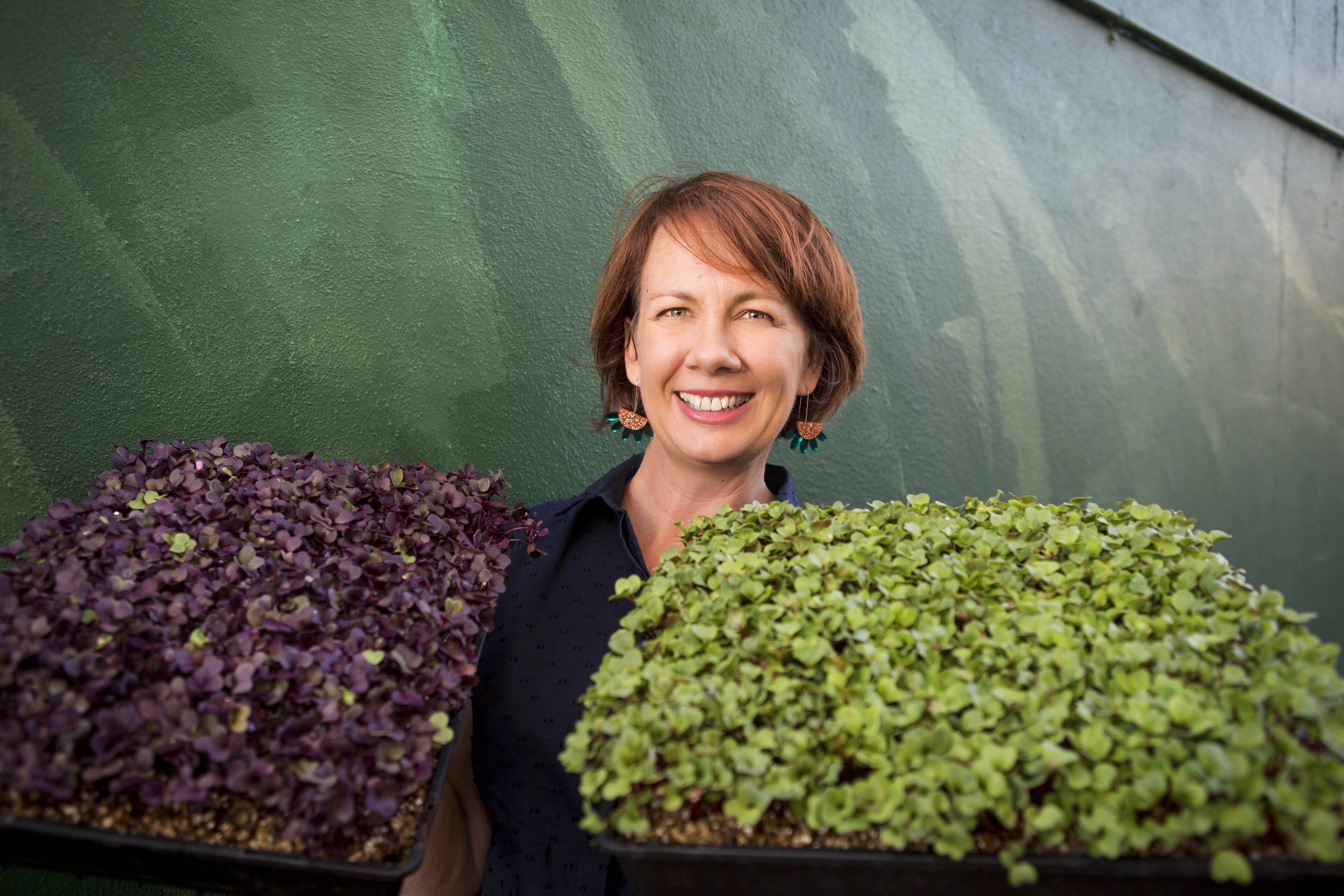
Kate Rehbein: Sharing the Bunda Ginga tale
14 June 2019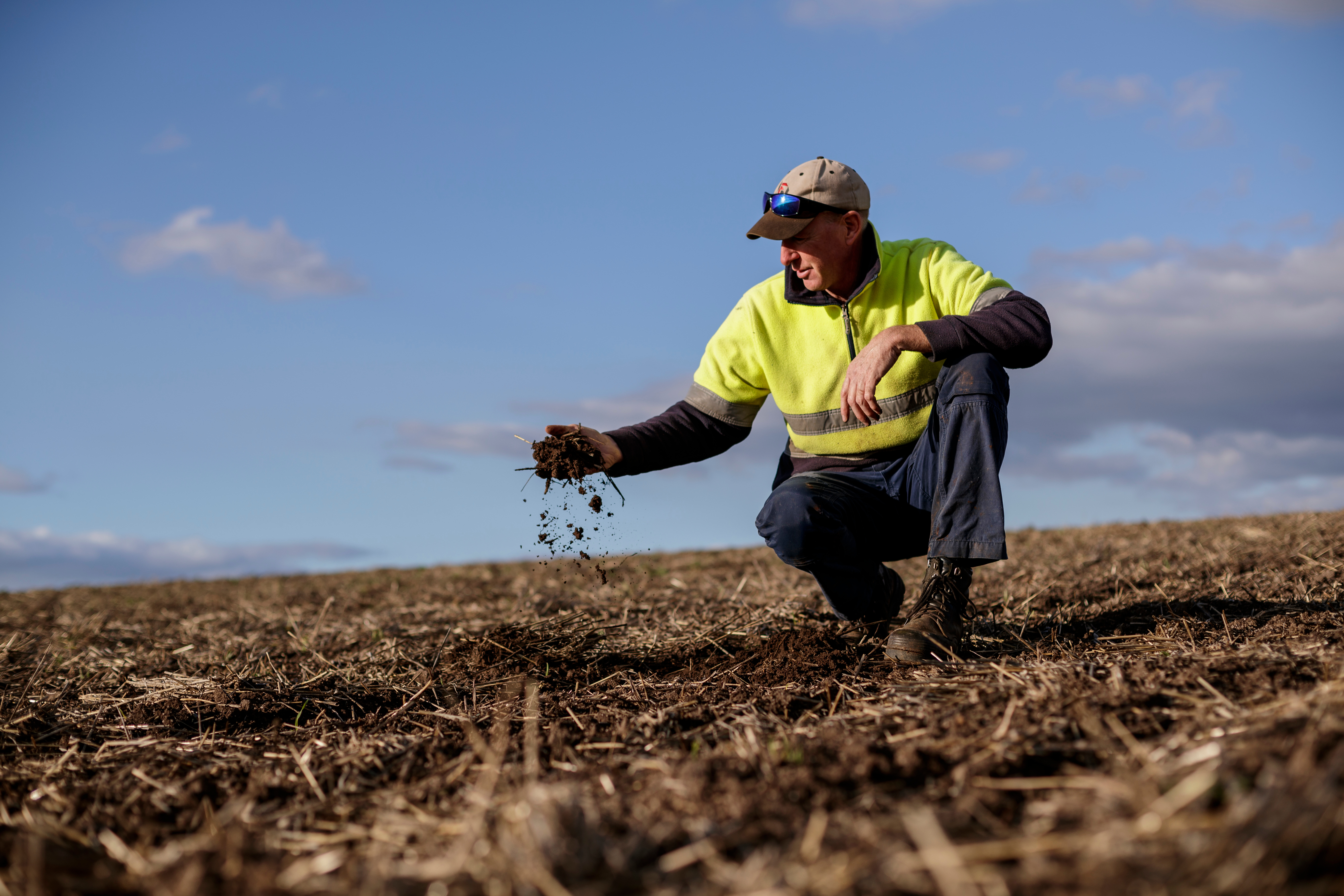
Nathan Richardson: Rich Tasmanian potato growing legacy continues
14 June 2019James Downey is a 31-year-old grower from Downey & Co Trust in Wallace, Victoria. We profiled him in the June/July 2019 edition of Potatoes Australia magazine.
Fast facts
Name: James Downey
Location: Wallace, Victoria
Works: Downey & Co Trust
Grows: Innovator, Snowden, Bliss and FL (fifth generation) potatoes; oats and barley
How did you first become involved in the potato industry?
I was born into the potato industry with both my parents running and working the family farm. When I was 19, my father passed away; my mother Elisabeth continued to run the farm and I would help her out. I am a boilermaker by trade and when I finished my apprenticeship at 21, I became more involved with the running of the farm. The past six years, I have taken on more responsibility and running of the farm with help from Mum.
What does your role in the business involve, and what are your responsibilities?
I am responsible for the day-to-day operations of the farm in partnership with my mother. My responsibilities include feeding the livestock, and depending on the time of the year, organising planting/ harvesting/grading potatoes, including any contractors that would be needed to complete these. I put in solid set sprinkler systems to water the potato crops and use irrigators.
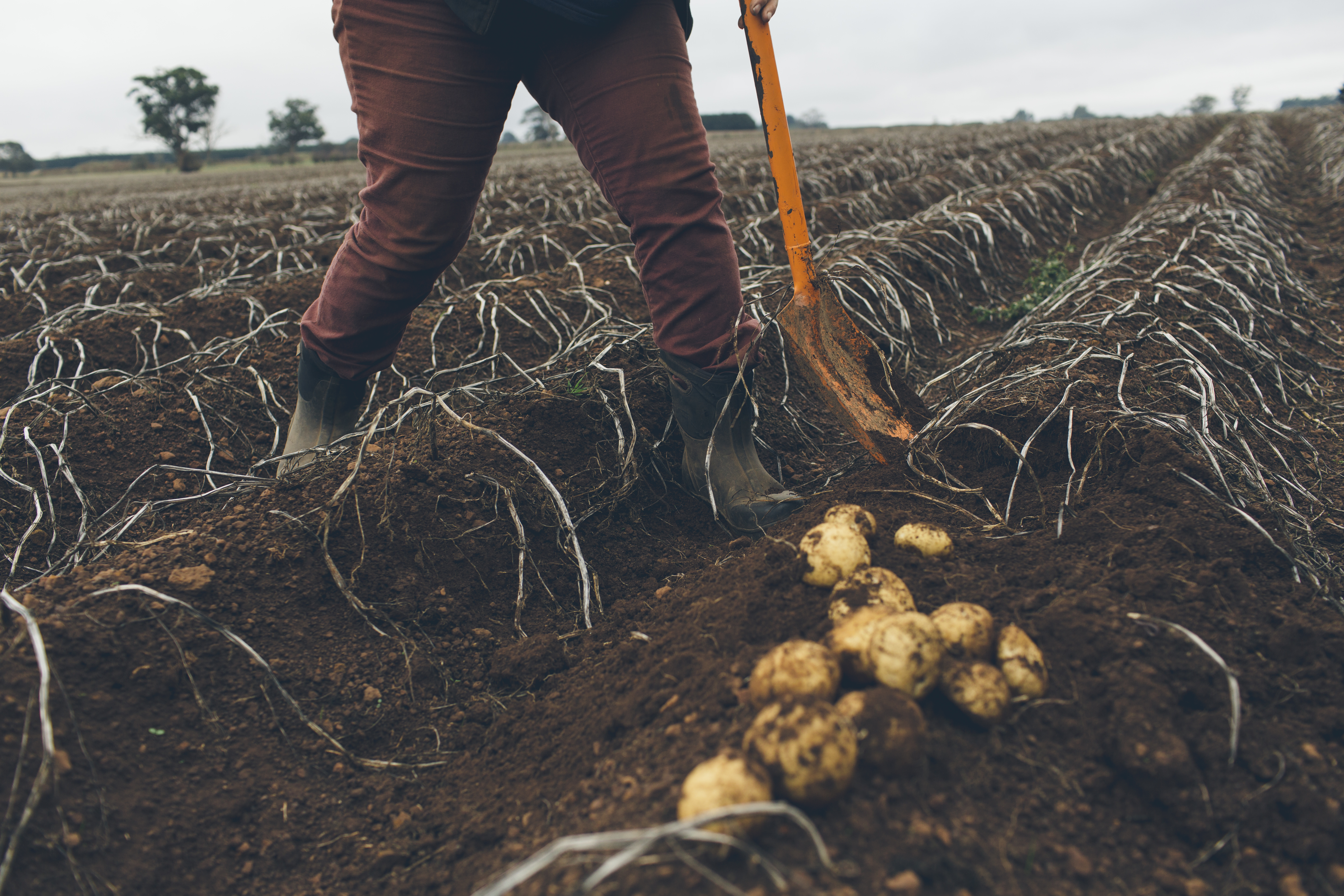
What do you enjoy most about working in the potato industry, and how do you maintain your enthusiasm?
I enjoy the end of the potato season, as you see where all your hard work has gone to with the finished product.
What are the biggest challenges you face working in the industry, and how do you overcome them?
Diseases such as potato virus Y (PVY) are a challenge. We do our best to try and buy clean seed to avoid PVY. Other challenges are: common scab, powdery scab and, at times, grub. We keep our rotations of paddocks as long as possible to stop these occurring. The market is very much a supply and demand market, which can be tough at times.
The weather itself is a challenge but we do our best with extra watering/labour during drier periods and ensuring harvesting potatoes out of lower areas of paddocks before any water damage from rain can be done.
"The population is growing, and farmland is becoming scarce, so we need to find ways to improve the efficiency of our land AND the quality of our produce."
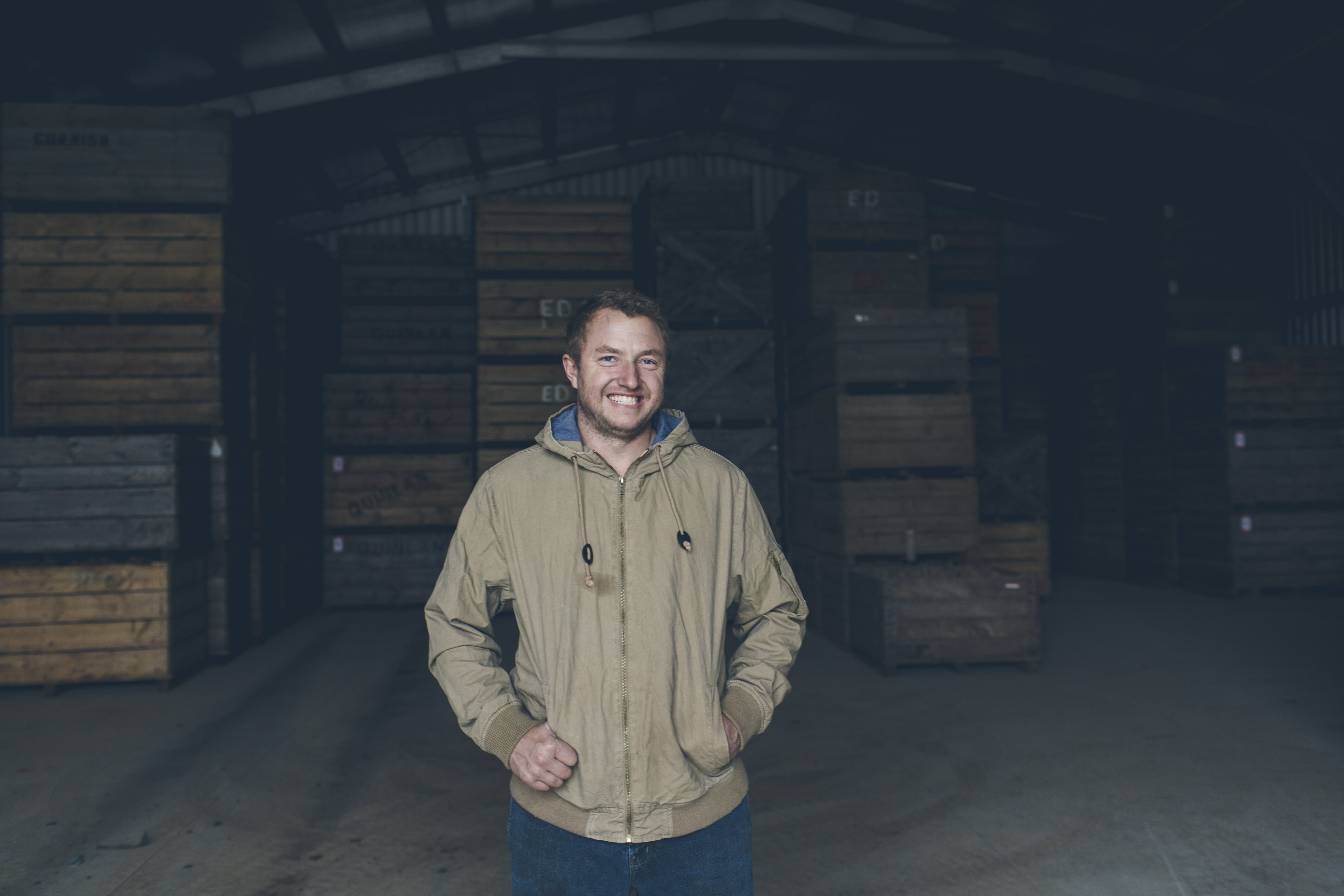
Where do you receive your practice advice and information from?
I get a lot of advice from other growers. I attend the local seed grower meetings where current disease threats and how to overcome them are often topics of discussion. I recently went on a study tour to New Zealand where we visited working farms. We discussed the methods, equipment, practices etc. that were used at each farm.
What new innovations, research and/or practices has your business implemented recently? What are you doing different to other growing operations?
We have updated our grader which has made our grading process easier with the ability of split loads. While we are still using sprinkler systems to water crops, we are aiming to move to using either a centre pivot or laterals in the next three years.
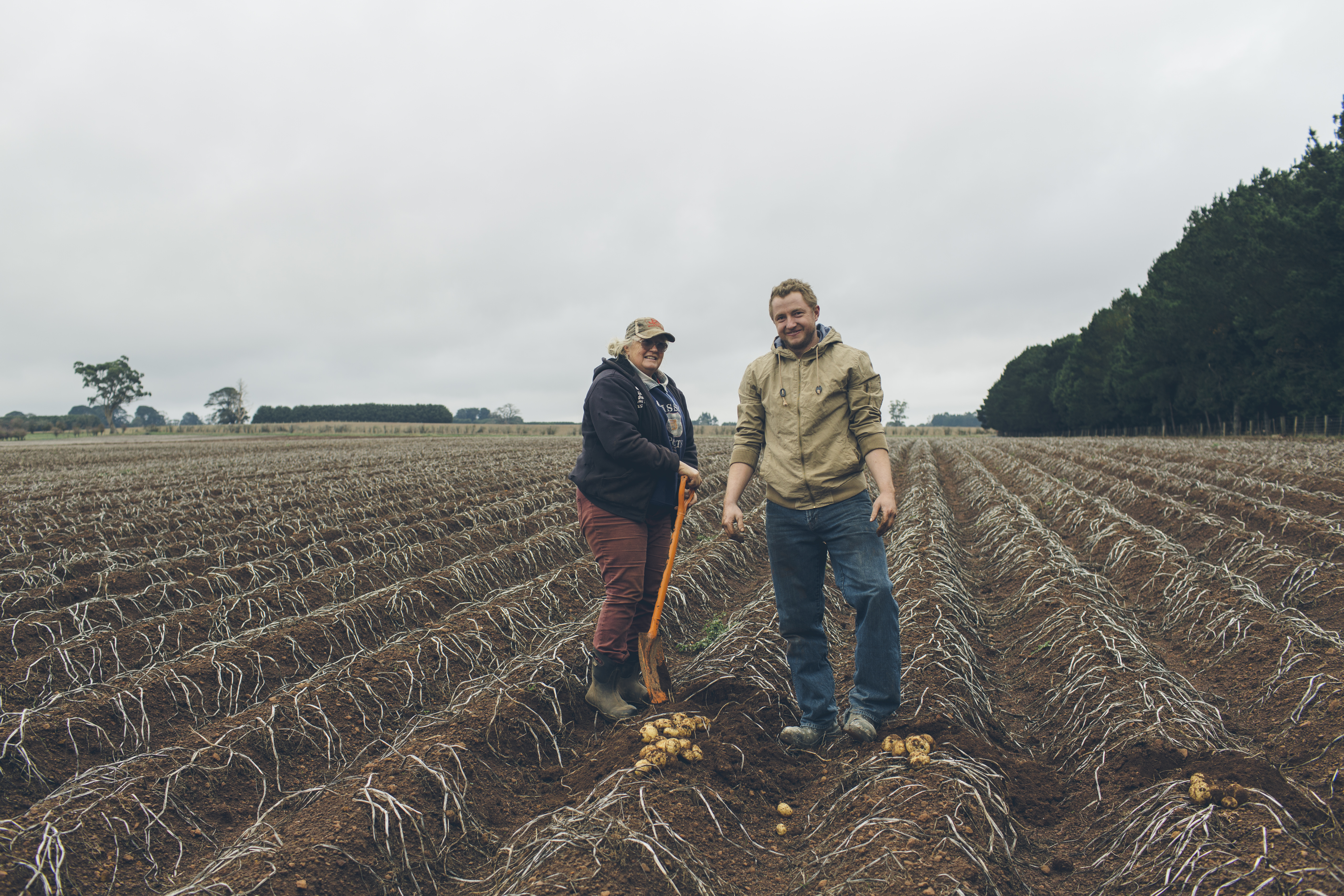
What areas of research are important to the potato industry and seed certification?
Prevention and treatment of diseases and threats to the crops.
In your opinion, what is the importance of seed certification in the potato industry?
The importance of seed certification in the potato industry is to set standards within the seed scheme which help to produce good quality potatoes.
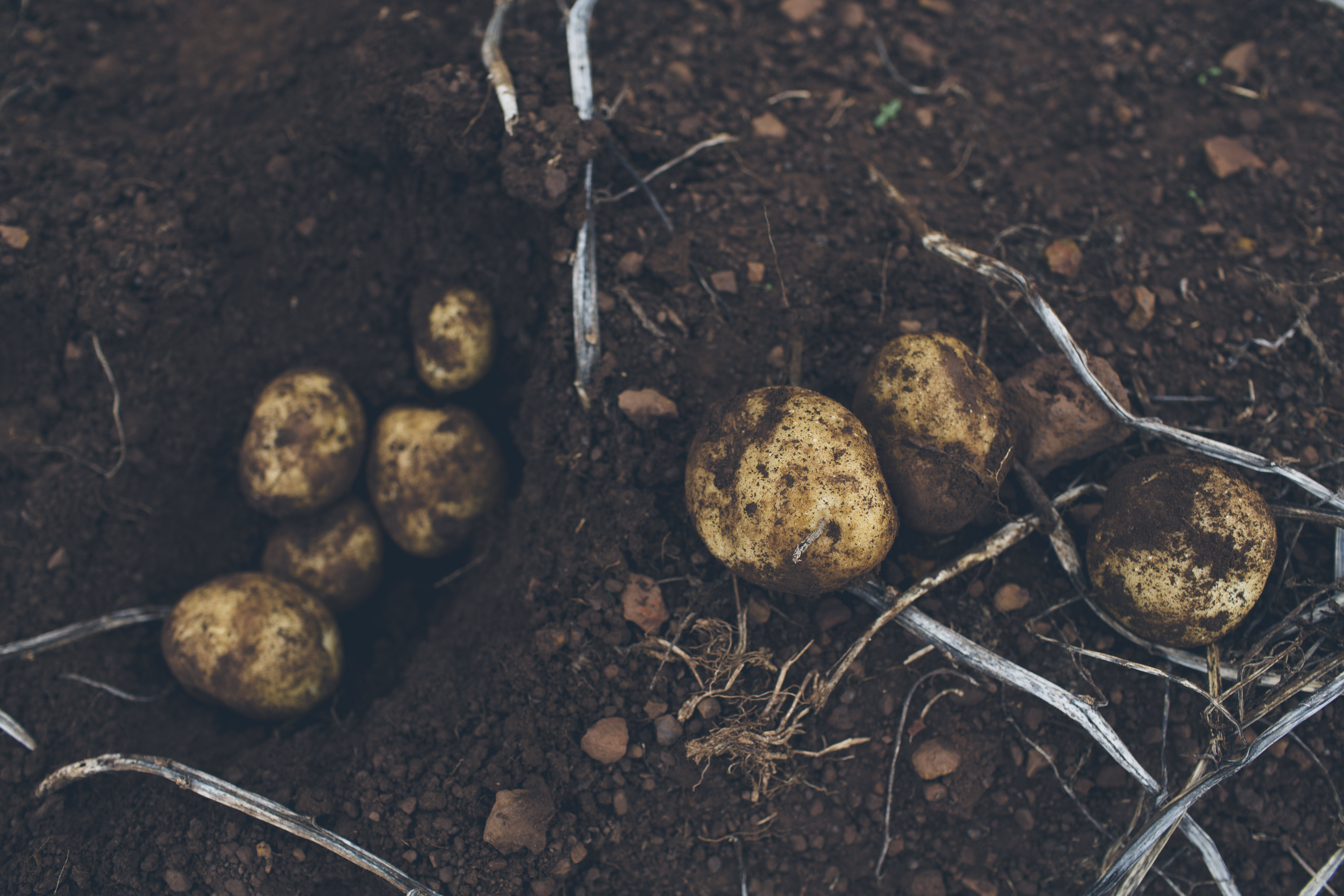
Where do you see opportunities for growth in the Australian potato industry?
There seems to be more demand for potatoes now than when my father was running the farm. The demand for seed seems to be gradually increasing each season.
Where do you see yourself in five years?
Over the next few years, I plan to increase the amount of seed potato that we grow – and in five years’ time I hope that we are at double of what we currently grow. I am hoping to upgrade our watering system to centre pivot/lateral to reduce the manual workload when it comes to watering.

This grower profile first appeared in the leading magazine for the Australian vegetable industry, Potatoes Australia. If you’d like to subscribe to receive a new edition of Potatoes Australia in your mailbox every two months, use our online subscription form!
Photography credit: LJM Photography

